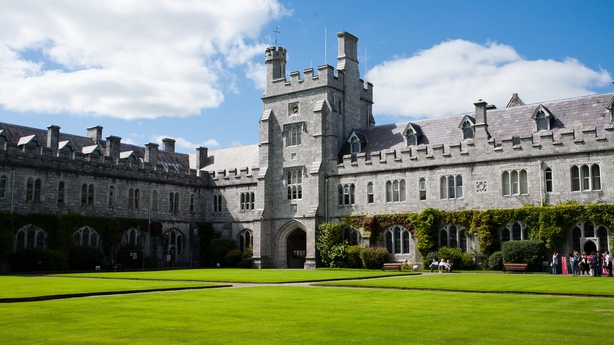Major new research from University College Cork has highlighted the damaging impact that 'deepfake' videos can have on public trust.
Deepfakes are artificially manipulated videos, usually involving the production of a fake 'face' constructed by Artificial Intelligence that is merged with an authentic video, in order to create footage of an event that never really took place.
The first of its kind study by UCC looked at wartime 'deepfakes' that were shared on social media relating to the Russian invasion of Ukraine.
Researchers found that deepfakes undermine peoples' trust generally in news media and that they led to internet users losing trust in any footage from the conflict.
According to the study, a lot of real media was incorrectly labelled as deepfakes and it also found that efforts to raise awareness around deepfakes could undermine trust in legitimate videos.
The research concludes that news media and Governmental agencies need to weigh the benefits of educational deepfakes and pre-bunking against the risks of undermining truth.
Similarly, news companies and media should be careful in how they label suspected deepfakes, in case they cause suspicion for real media, the study found.
According to the research, a lack of deepfake literacy led to significant misunderstandings of what constitutes a deepfake, showing the need to encourage literacy in these new forms of media.

What wartime deepfake videos reveal about trust and deception
Almost 5,000 posts on X, formerly known as Twitter, in the first seven months of 2022 were analysed in the UCC study to explore how people react to deepfake content online.
The research highlights examples of deepfake videos, such as the use of video game footage as evidence of the urban myth fighter pilot ‘The Ghost of Kyiv’; a deepfake of Russian president Vladimir Putin, showing the Russian president announcing peace with Ukraine; and the hacking of a Ukrainian news website to display a faked message of Ukrainian President Volodymyr Zelensky surrendering.
The study was led by UCC School of Applied Psychology researcher John Twomey and co-written with fellow researcher Didier Ching, along with Supervisors Dr Conor Linehan and Dr Gillian Murphy of UCC, Dr Matthew Aylett of CereProc Ltd. and Heriot-Watt University, and Prof. Michael Quayle of the University of Limerick.
"The evidence in this study shows that efforts to raise awareness around deepfakes may undermine our trust in legitimate videos," said Mr Twomey.
"With the prevalence of deepfakes online, this will cause increasing challenges for news media companies who should be careful in how they label suspected deepfakes in case they cause suspicion around real media.
"News coverage of deepfakes needs to focus on educating people on what deepfakes are, what their potential is, and both what their current capabilities are and how they will evolve in the coming years," he added.
This study is part of broader work by UCC’s School of Applied Psychology, examining the psychological impact of deepfakes, and is funded by Science Foundation Ireland through LERO - the Science Foundation Ireland Research Centre for Software.







